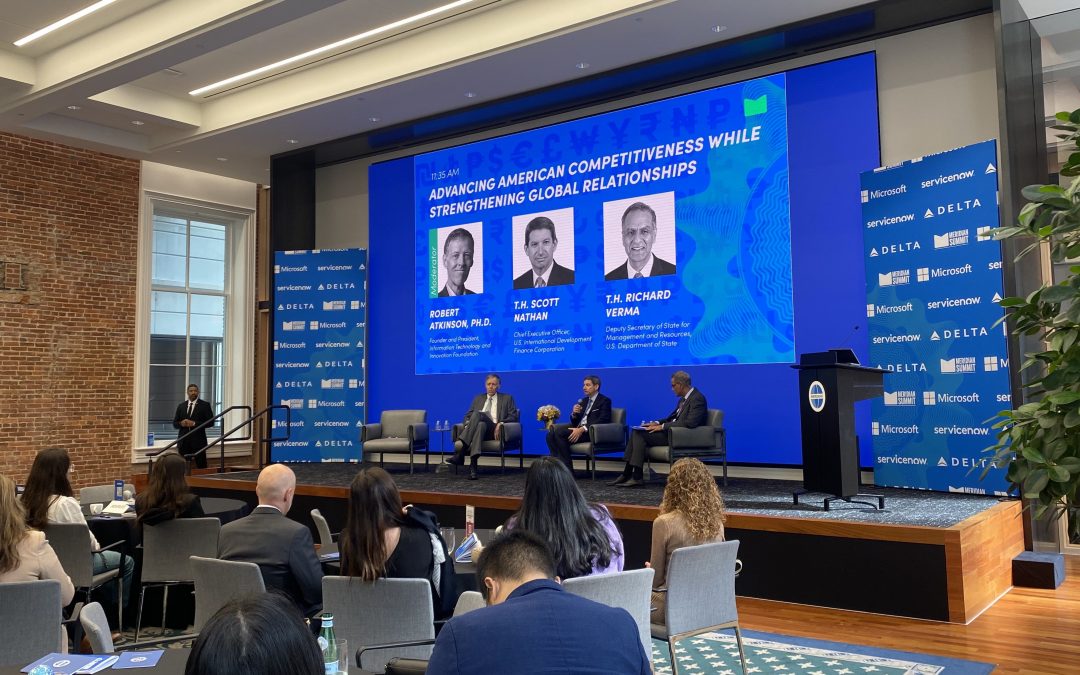WASHINGTON — At a time of congressional disarray, national security experts warned that U.S. interests abroad could suffer greatly without more investment in emerging markets.
Gaps in economic opportunities and stability for developing countries increase the likelihood of political corruption, expert panelists said Friday at the 12th annual Meridian Global Leadership Summit.
“Those voids get filled by criminal networks, by narco traffickers, by some really bad actors,” Deputy Secretary of State for Management and Resources Richard Verma said. “So, we have to be present. We have to be there for a number of different reasons, but it is in our interest to be present, to show up, to be at the table, to set the rules, to help shape the rules, to make investments that are critical.”
Chief Executive Officer of the U.S. International Development Finance Corporation Scott Nathan said U.S. investment in Sri Lanka exemplified positive foreign policies for U.S. national security.
U.S. funding contributed to Indian company Adani Group’s investment and development of Sri Lanka’s Colombo West International Container Terminal. This strategy worked to offset efforts by Chinese company China Merchant Ports, which owns several ports in the region, and increase the local workforce.
“It’s an example of U.S. money, along with colleagues in the India Exim Bank, funding an Indian company to do something that’s strategically important for India, our partner,” Nathan said. “It’s developmentally important for Sri Lanka, and it has global implications for free trade and a lack of economic coercion.”
Even though both Republicans and Democrats share a desire to counter Chinese investment efforts, there has not been bipartisan support for increasing U.S. investments in emerging economies, said Dina Titus, R-Nev.
“Another thing that they are doing in the Senate, which I wish we could do in the House, is working on international conservation efforts, and I think that’s the form of soft diplomacy that would help with the investments,” Titus said.
Verma said that U.S. development assistance must be for the “right reasons,” and while assessing threats from China and other adversaries is important, so are strong, bilateral relationships that foster economic opportunities for both partners.
“We found a role for the U.S. government that stimulates that kind of investment, that facilitates it, that ensures it, that protects it, but that doesn’t try to substitute, dollar for dollar, some massive state economy,” Verma said.
Increased violence and displacement in the Middle East and Europe heighten the need for the U.S. to deter other conflicts by strengthening U.S. financial support to emerging markets.
“Our relationships worldwide, how we deploy them for good, how we deepen and revitalize them, that is the heartbeat of U.S. foreign policy,” Verma said. “It couldn’t be more critical today, as the world stands at what President Biden has called, ‘an inflection point.’”

